With our socially conscious wedding seemingly a distant memory now, I wanted to shine the spotlight on some of the tremendous social enterprises I have had the pleasure to work with in preparation for our nuptials.
While our celebrations were admittedly far from a sustainable affair, I hope my experience will serve as an inspiration for future bride-to-be-s to proactively seek ways to support a meaningful social or environmental cause.
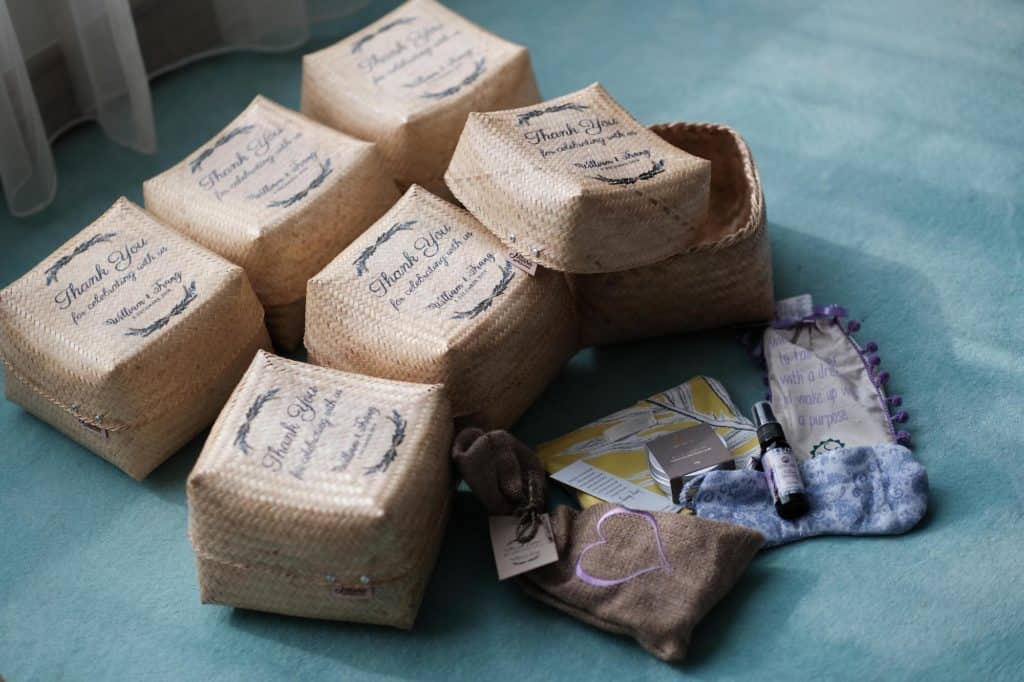
Supporting sustainable farming and arts
Our socially conscious wedding favors were rosella tea bags, organically grown and wrapped in handmade burlap pouches by Muntigunung Community Social Enterprise, which empowers underprivileged women in Bali to pursue fair employment through sustainable agriculture and handicrafts.
Despite being surrounded by vast swathes of greenery, lack of sustainable water sources and an extreme 8-month long dry season have long hindered the impoverished Muntigunung community in the Northeastern part of Bali from undertaking agricultural activities crucial to their livelihood.
With no stable source of income, villagers resorted to begging in Bali’s tourist hotspots in Ubud or Kuta, often bringing children along instead of sending them to school.
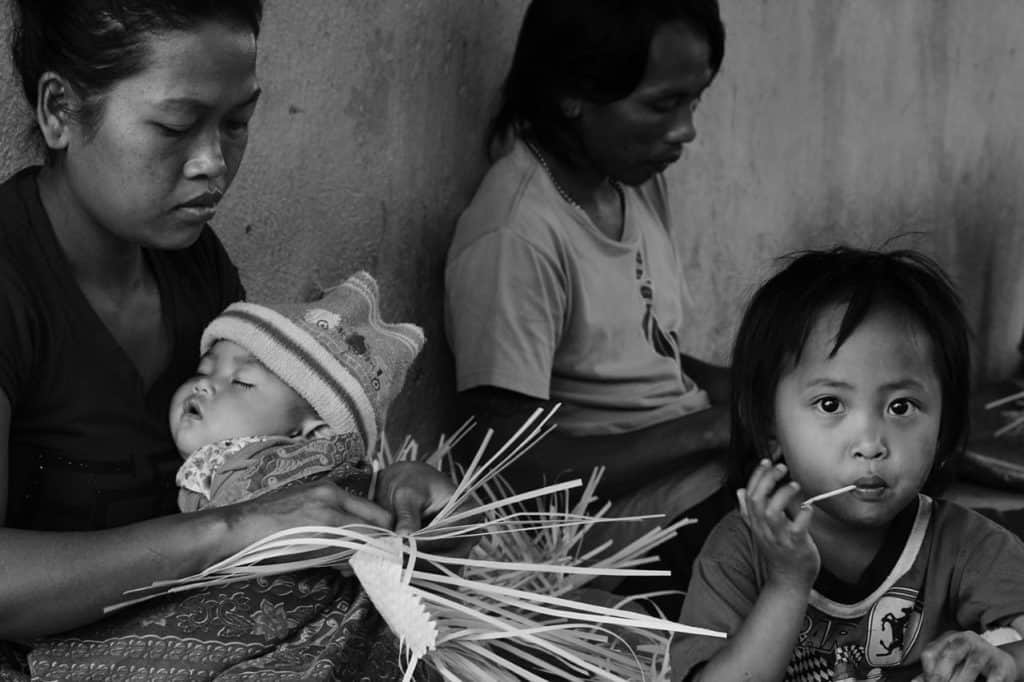
Child marriage and infant deaths were rampant in the community – child mortality reached a record high of 9% in 2004, almost double of the average figure at the time for Indonesia. Villagers had no legal identity, meaning they didn’t own an identity card or a marriage certificate, which prevented them from accessing basic healthcare services.
To address these dire circumstances, Future for Children, a Swiss NGO, together with the Indonesian charity Yayasan Dian Desa, launched the Muntigunung Development and Livelihoods program in 2006 to construct custom designed tanks to harvest and store rainwater for a secure supply of clean water.
These buildings are maintained by the local villagers, and under the roof of the communal tank, various income-generating activities are conducted by the Muntigunung Community Social Enterprise whose mission is to provide fair and stable employment opportunities to the most disadvantaged in Bali.
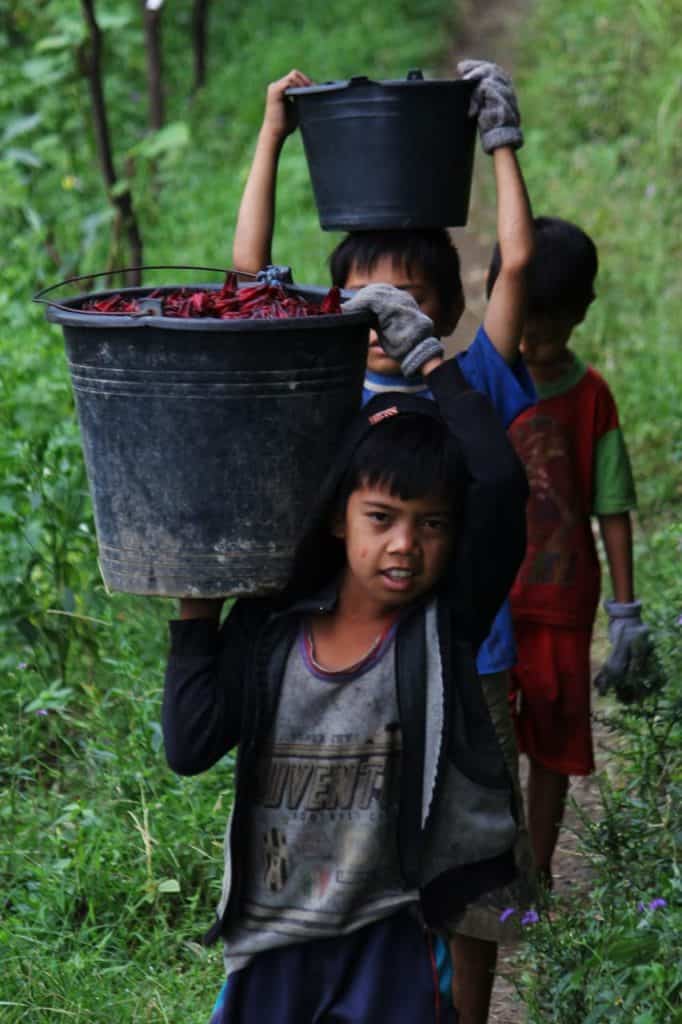
Villagers are trained on sustainable farming methods to grow rosella tea, cashew nut, palm sugar and moringa, and the social venture also undertook extensive reforestation and replanting efforts to address the devastation caused by landslides in the area.
In addition, the community is renowned for their hammocks, lontar (palm leaf) packaging boxes, bags and other accessories, all handmade from traditional textiles and raw materials, most of which originate from Muntigunung.
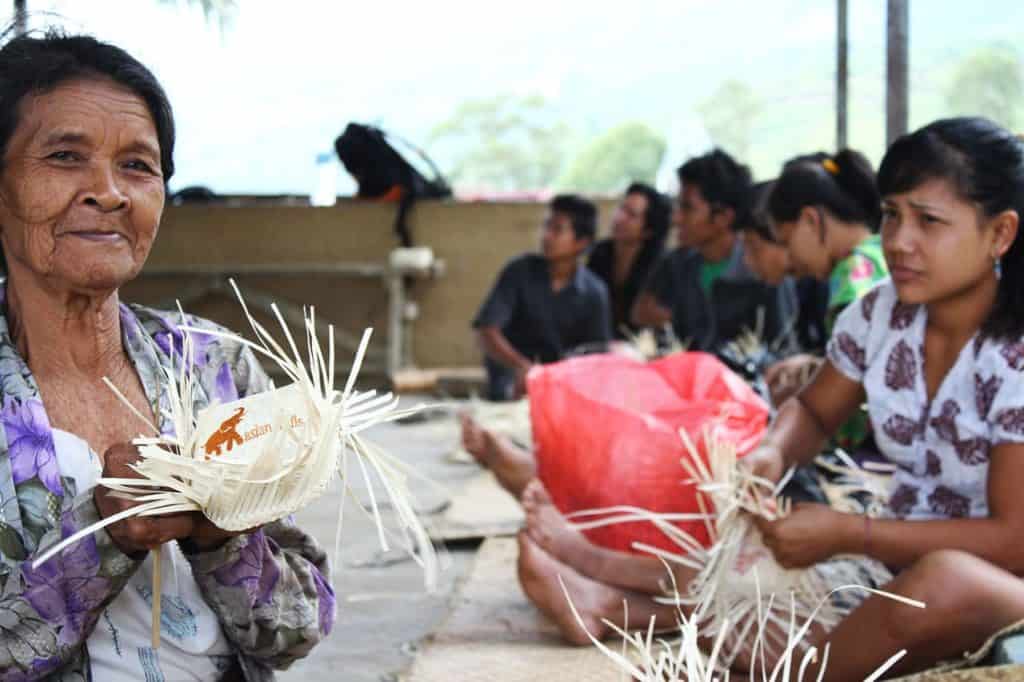
Impact: The social enterprise has, to date, employed close to 230 villagers in a community of around 1000 households.
The majority of the sales proceeds are reinvested into creating new and expanding existing business initiatives, which in turn enables villagers to fulfill their basic family needs, including schooling for their children.
Muntigunung also provides mothers-to-be with basic hygiene training with the opportunity to register for an identity card and the healthcare benefits associated with it, to offer them the option for a safer childbirth in the local hospital.
As a result of the social venture’s healthcare initiatives, last year, they have registered only one newborn death, exceeding their initial goal of cutting infant mortality by half.
At-risk women champion fashion upcycling
Our bridesmaids and sisters received a handmade lontar box from Muntigunung, which included a toiletry bag, hand-sewn from upcycled fabrics by Sowing Room, a social enterprise that supports the rehabilitation of victims of domestic abuse and trafficking through arts and crafts.
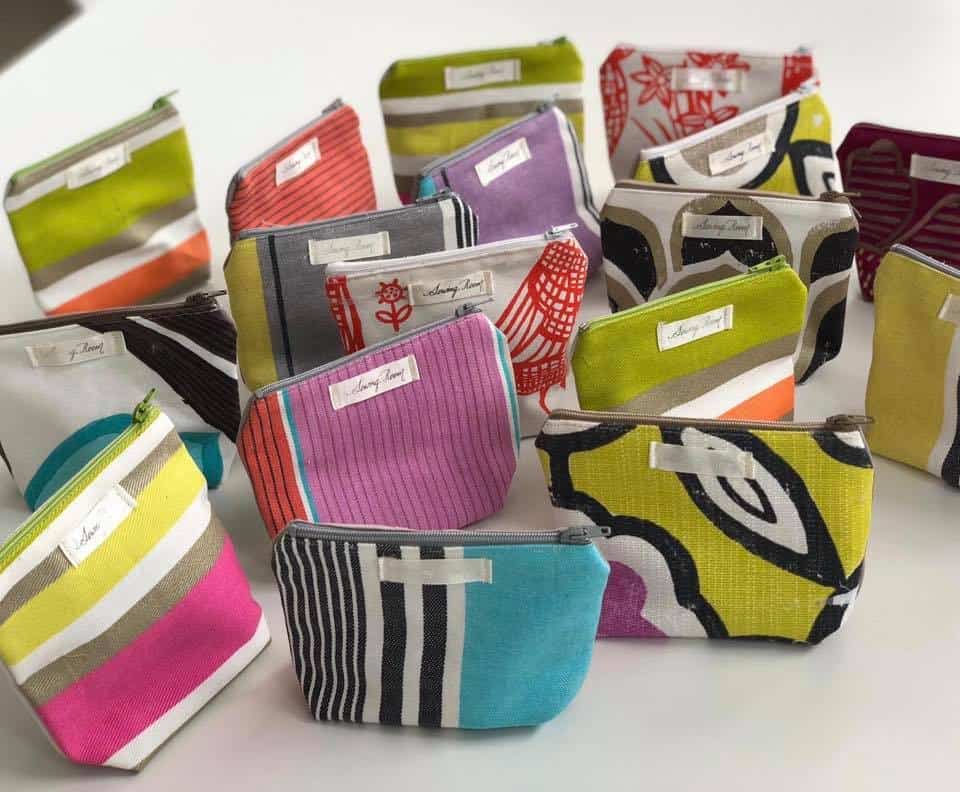
Sowing Room teaches abused and underprivileged women how to sew lifestyle and household accessories using upcycled fabrics.
Raw materials include off-cuts, textile scraps and sample swatches of designer fabrics donated by textile merchants—all of which would otherwise end up in landfills—and are repurposed into totes, evening clutches, cosmetic pouches, table napkins, table runners and straw sleeves.
“The ladies feel like they are discards. But beauty can be brought out of castaways,” shares Jolene Teo, founder of Sowing Room, who combined her skills in business, jewellery and floral design with her experience in counselling victims of domestic violence to create the social enterprise.
Her employees are at-risk women with little formal education and who live in shelters, so learning a new skill is a way for them to heal, earn an income, and—in some cases—start their own business after returning to their home countries in the Philippines, Myanmar or India.
Sowing Room sells their designs online, at pop-up stores and in socially minded F&B outlets. The ladies are paid a fair wage for each piece of product they produced.
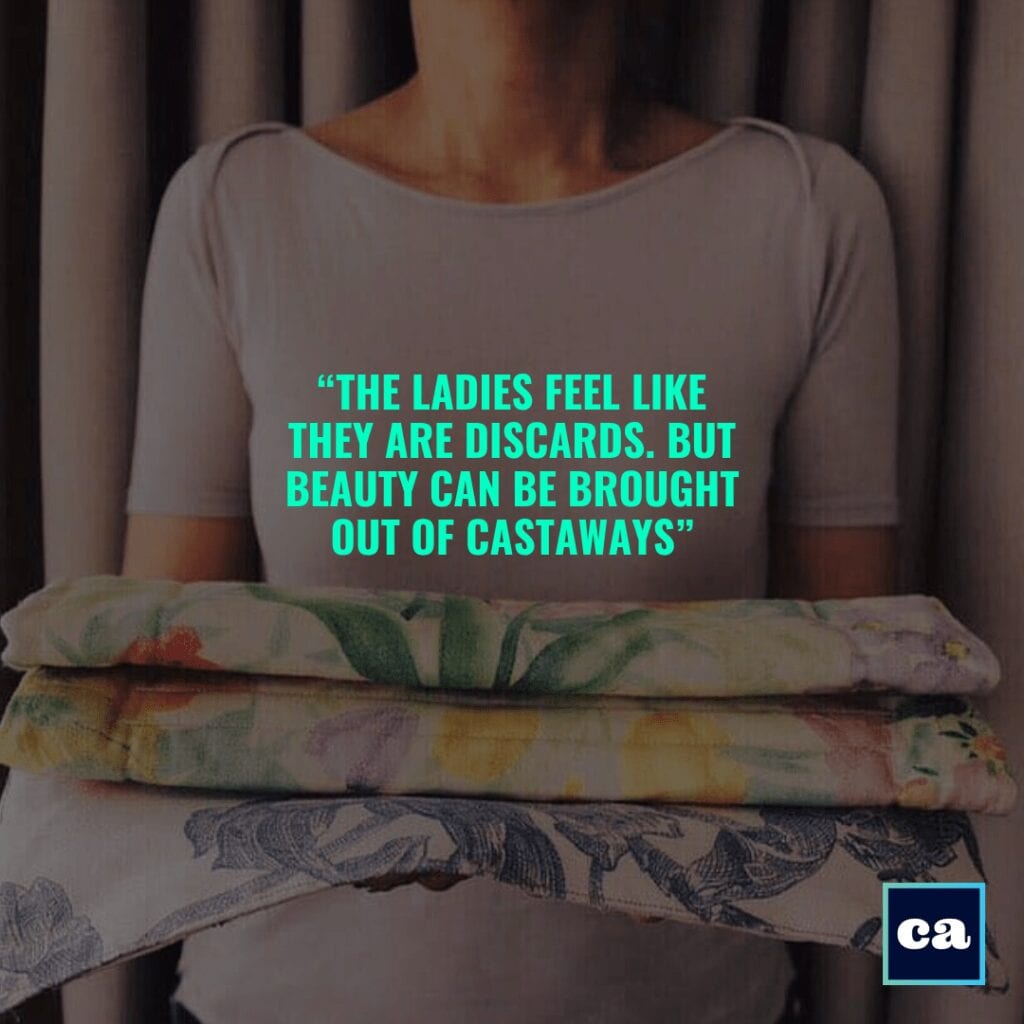
Impact: Two of Sowing Room’s trainees, Jeanie from the Philippines and Manpreet from India, spent several months with the social enterprise before returning to their home countries. Teo gave them a sewing machine each as parting gifts, and both women are now proud owners of their own small businesses.
“Before when I was broke, I was just broke. Now when I’m broke, I know I can create something to sell”.
Jeanie
Marrying cultural diversity with sustainable fashion
Our socially conscious wedding date coincided with my mom’s birthday, so we wanted to prepare a particularly meaningful gift for her – Frankitas’ colourful clutches, handmade with eco-friendly fabrics and designs reflective of Indonesia’s diverse cultural heritage served this purpose perfectly.
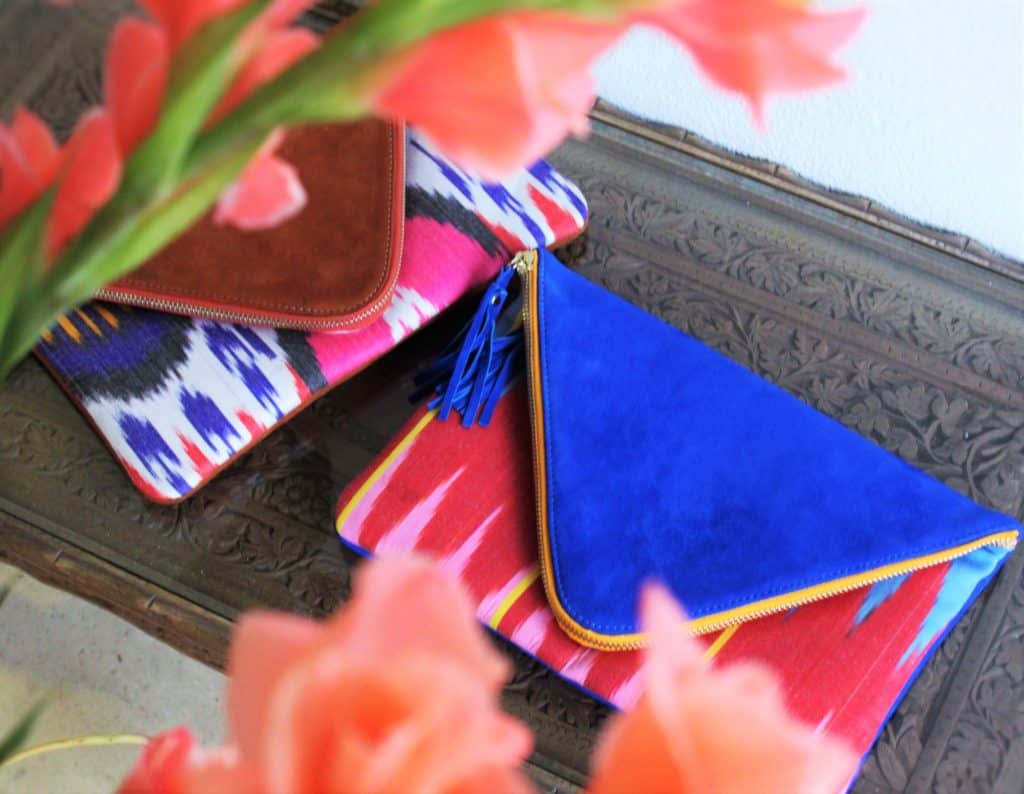
Inspired by her Indonesian roots, Malaysian upbringing and the ambition to create a purpose-driven fashion label, Frankie Turner founded accessories brand Frankitas, which provides a platform for economically disadvantaged artisans from Indonesia, Malaysia, India, Africa and Central Asia to earn a living, while preserving their heritage through sustainable craftsmanship.
The Frankitas brand is best known for its unique blend of bold colours, ethnic motifs and contemporary designs, as well as the use of eco-friendly traditional textiles from East and Central Asia, such as batik, ikat, songket and rangrang, which are purchased at fair trade prices from local weavers.
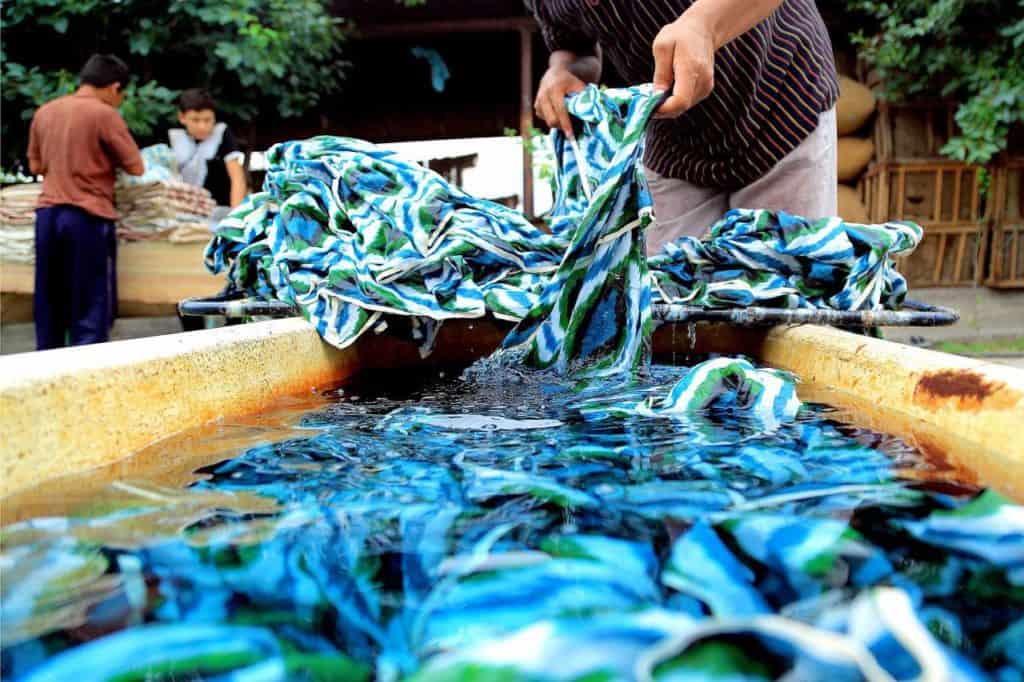
Ikat is one of the most environmentally friendly fabric using organic cotton or silk, because it’s handmade with natural, plant-based dyes and hand-woven using wooden looms instead of relying on heavy machinery and chemicals – reasons why fashion is rated as one of the world’s most polluting industries.
Frankitas also upcycles its leftover fabrics and makes a conscious effort to reduce plastic in its packaging by distributing its products in reusable dust bags.
“What sets us apart is our aspiration to be a brand that has a purpose other than making a profit. Don’t get me wrong, we didn’t set out to be a 100% charitable business, we wanted to generate profit. But we believe in a fair distribution of wealth, where everyone in our supply chain benefits fairly – from our weavers as well as their children to our bag-makers, our team and the community.”
Frankie Turner, Founder, Frankitas
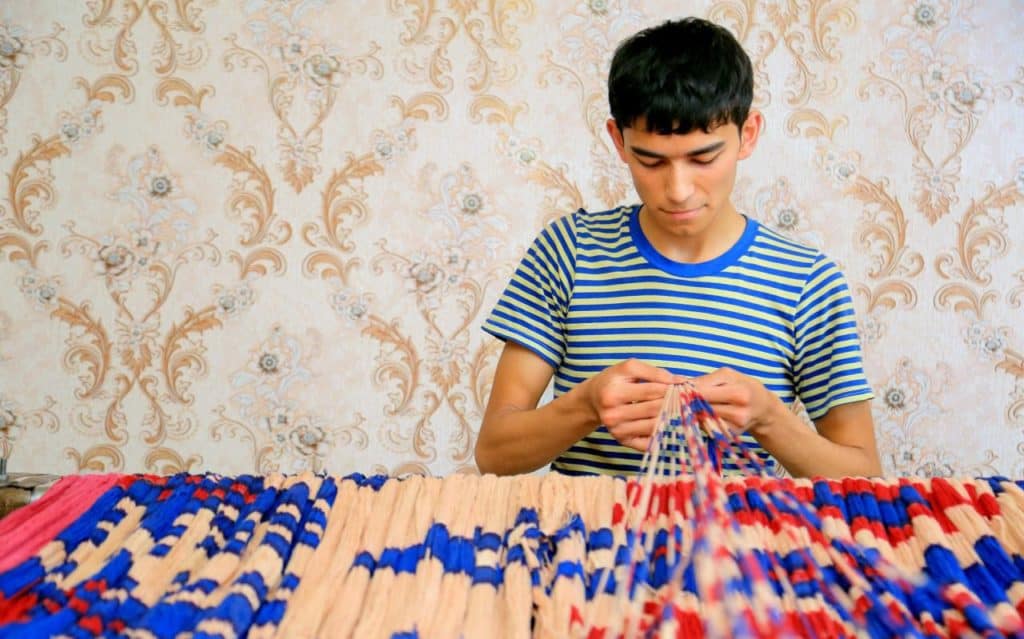
Impact: Instead of limiting her support to a pure financial contribution only, Turner strives to leverage her creative and business expertise to empower like-minded non-profits and social ventures to follow in Frankitas’ footsteps and pursue a sustainable social and environmental impact.
Organizations under Frankitas’ tutelage include non-profits that provide education and a steady source of income to the weaving community, including those of vulnerable backgrounds and with disabilities, in Cambodia and the remote villages of Indonesia’s Sumba island.
Frankitas also supports Fugeelah, a lifestyle accessories brand designed by students at Fugee, a Kuala Lumpur-based school providing free education to refugee children from Somalia, Yemen, Syria, Iraq, Pakistan and Palestine.
Turner and her team train refugee women on the ins and outs of running a fashion business, including jewelry making, marketing, distribution and strategy. All of Fugeelah’s profits are reinvested back into Fugee school and to support marginalized artisans in Malaysia.
Pioneering eco-friendly and ethical skincare
Our bridal party was also gifted a lavender-infused eye patch and room mist from Utama Spice, a social venture championing sustainable and natural skincare.
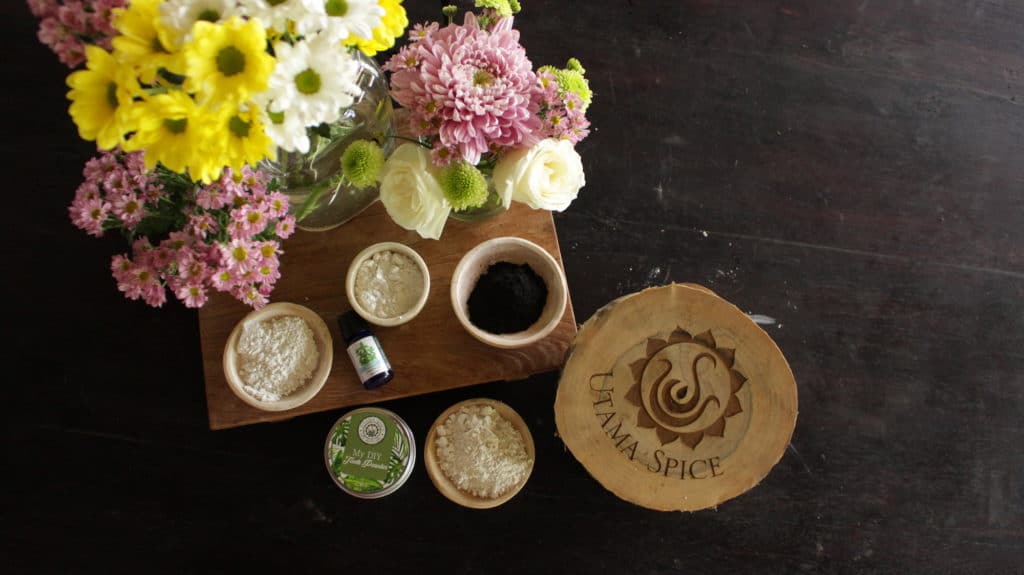
Sustainability permeates Utama Spice’s ethos, from creating products that are natural, eco-friendly and cruelty-free to employing and paying fair wages to rural women, which keep them off the streets and allow them to send their children to school.
The family-run venture, which was co-founded in 1989 by Melanie Templer and is currently operated by daughter Ria Templer, promotes ancient Balinese herbal knowledge, transparent supply chains and ethical work practices.
Unlike most skincare brands, Utama Spice is directly involved in their entire manufacturing process and invests extensively into research on organic, bee and seaweed farming to ensure that their production only involves natural ingredients and is free from animal testing.
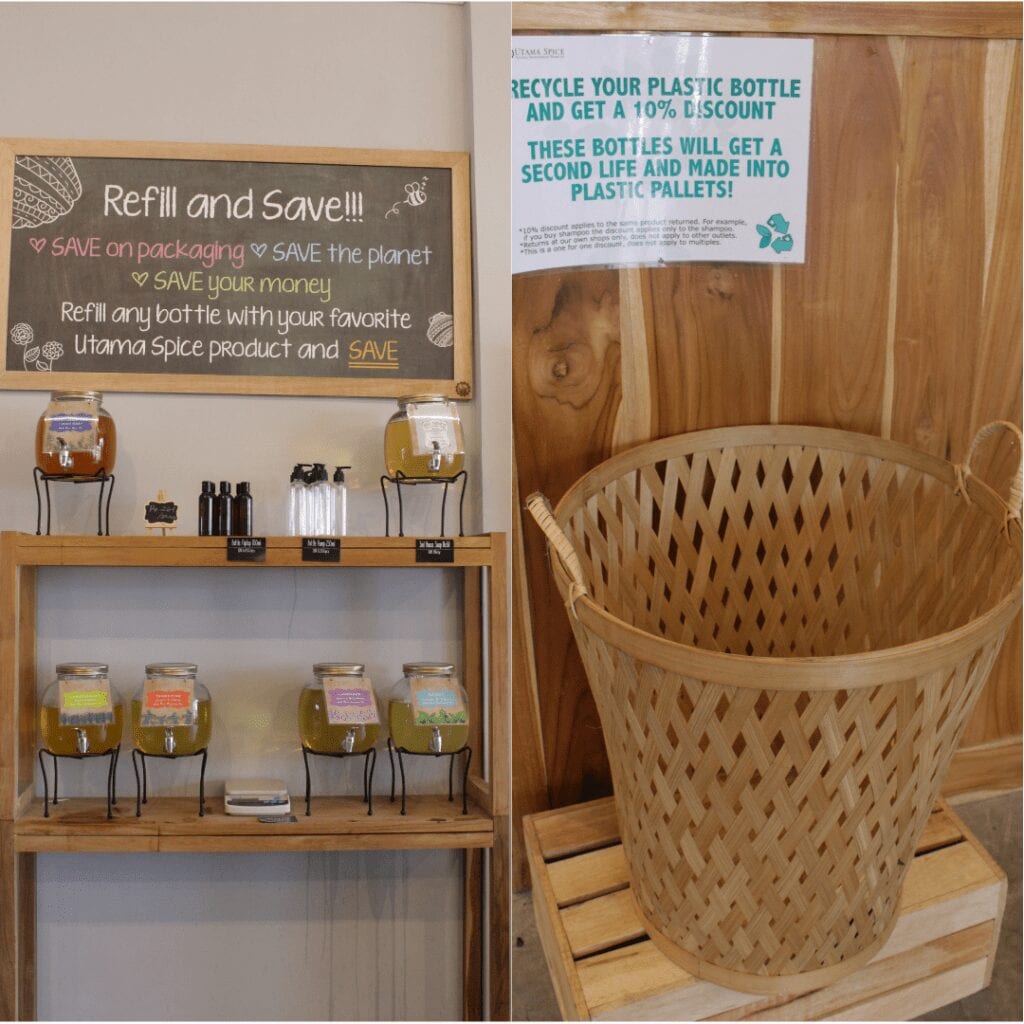
“Our body lotion symbolizes so much more than the ingredients it contains: the sustainable farming practices employed to grow our seaweed and coconut oil; the ethical working conditions enjoyed by our employees, or the guarantee that our essential oils are 100% natural. If you wouldn’t cook with it, you shouldn’t put it on your body.”
Ria Templer, CEO, Utama Spice
Impact:Instead of donating to a charity without oversight on how that money is spent, the social venture integrates a robust social and environmental purpose into every aspect of its operation.
Utama Spice strives to empower women to gain (financial) independence, which enables them to provide education for their children, and reduces the likelihood of them becoming victims of domestic violence.
These female employees often become the breadwinners of the family, while their husbands stay at home with the children, reversing the typical gender stereotypes common in Bali’s largely male-dominated society.
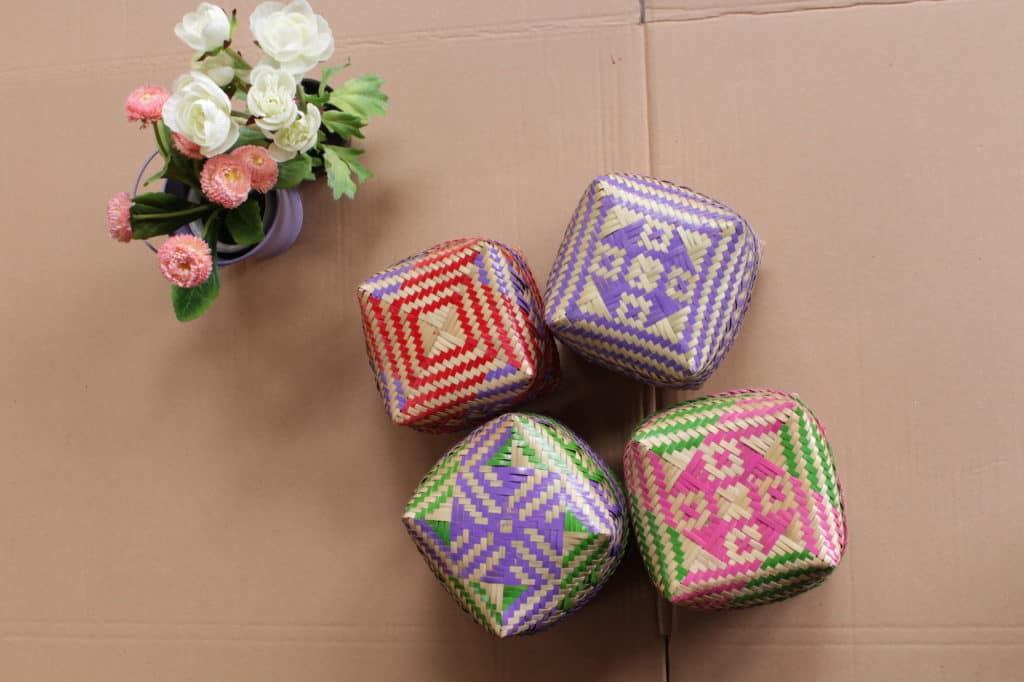
The social enterprise also buys Muntigunung Community Social Enterprise’s hand-woven lontar boxes, which takes a whopping 1000 days to produce each, to use as eco-friendly packaging. By paying almost three times the price of what other suppliers would charge and by leveraging their remarkable growth from Singapore to the US, Utama Spice orders alone guarantee a steady flow of income to the village artisans.
Their profits are reinvested to support a diversity of causes, including veterinary aid for stray animals, sustainable farming research and disaster relief efforts. During the eruption of the Mount Agung volcano, the Utama Spice team volunteered to design a new product line which they distributed free of charge in the camps filled with Balinese who have lost their home during the natural disaster.
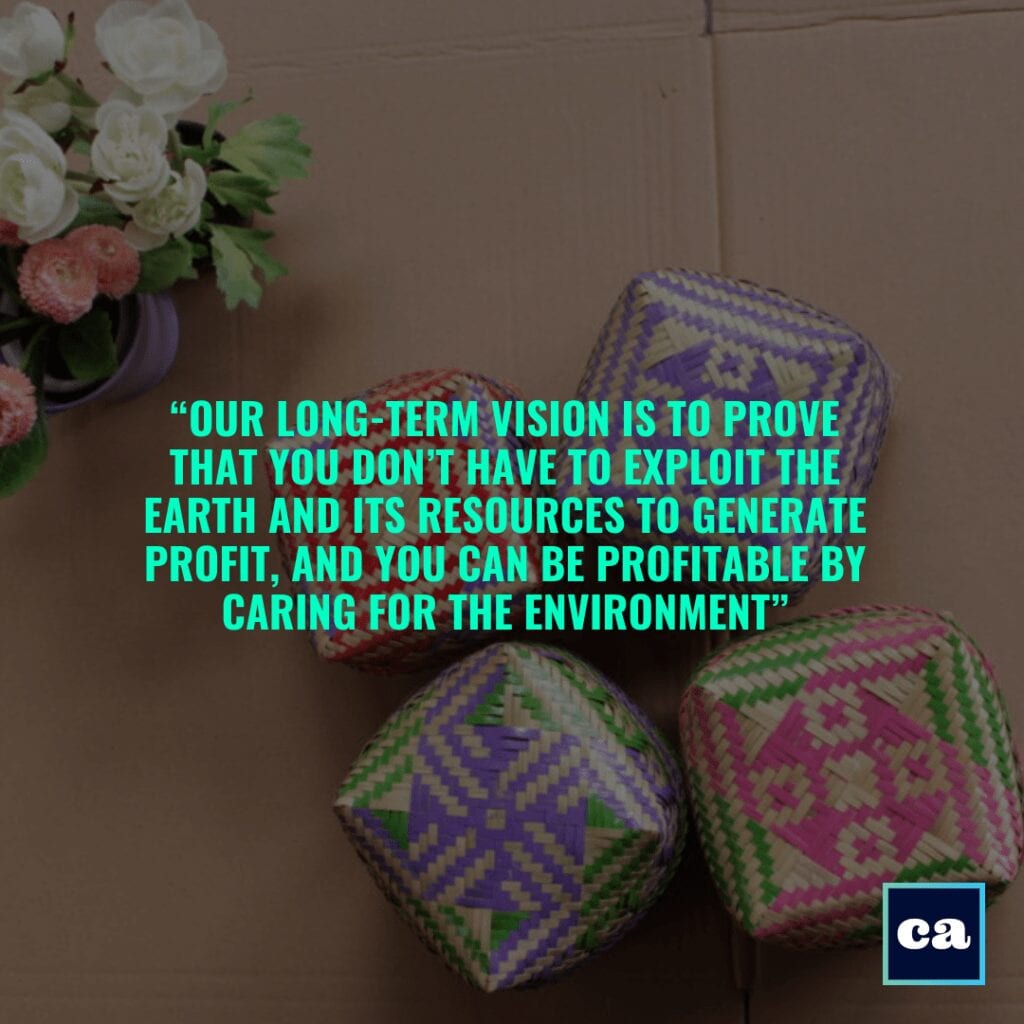
Listen to our Causeartist podcasts here.









